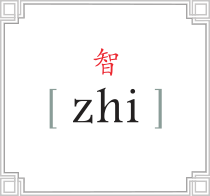Kukicha
Ingredients: 100% Organic green tea stems and twigs
A unique and robust tea made from the toasted twigs and branches of the tea plant. Great for digestion, it can be enjoyed all day and into the evening.
Classified as a green tea, Kukicha is actually made from the stems, stalks, and twigs of the tea plant. Because the caffeine resides in the leaves of the plant, kukicha subsequently has a low caffeine content and is considered practically caffeine free. Kukicha also does not have that classic green tea taste because it does not have any of the leaves' chlorophyll either. Instead, it has a strong roasted aromatics and notes of walnuts.
Greatly renowned in macrobiotic circles, and of course, in Japan where this specialty tea originates.
Water: 205-210°F | Powder: 2 tsp per 12 ounce cup | Infusion Time: 3 minutes
Basic Steeping Tips
- Use filtered or spring water, whenever possible
- Don’t over-boil water
- Remove leaves after recommended time (adjust to taste)
- If you want stronger tea, use more leaves instead of steeping for a longer time
Kukicha has been studied and shown to be very nutritious. A serving of this roasted twig tea contains calcium, zinc, selenium, copper, and B vitamins. It is prized for its alkalizing and hydrating qualities.
Kukicha or “twig tea” is a special type of Japanese tea made with a blend of stems, stalks, and twigs. It is sometimes referred to as “winter tea” as it is harvested and processed in the fall. It is a popular drink for the wintertime and is also sometimes added to juices because of its distinct flavor.
To create the unique flavor that comes with Kukicha, the Camellia sinensis plant is trimmed after the last harvest of the fall, when the caffeine content in the plant is low. After it is picked, the plant is steamed to make it soft. Then it is left to age and dry, and finally roasted before being sent to the market.
Land is very scarce in Japan, so agriculture was a very expensive way of making a living. Japanese farmers were renowned for their ingenious ways of getting as much out of their plants as possible, which is how kukicha came into existence.













